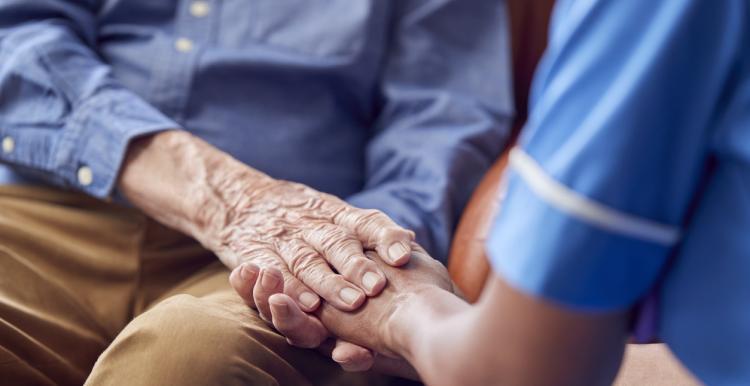Carolyn's struggle with her husband's dementia care

Carolyn, 74, from North Yorkshire, shares how she's struggling to get care for Colin, her husband of 46 years. This ordeal has been exhausting and painful for Carolyn and her family.
"In a nutshell, it started shortly after Colin had a mini-stroke in 2019," Carolyn says. She noticed changes in her husband's personality. He'd forget things more easily and needed help with daily tasks like getting dressed.
"But he would always put off seeing the doctor," Carolyn explains. "I'd try to speak to the doctor about his symptoms, but they couldn't do anything more for him because he wasn't there."
In January 2021, Colin acknowledged something was wrong and received a memory test. "The nurse said it wasn't Alzheimer's, but that Colin had vascular dementia and that it would get worse over time".
For the next two and a half years, Carolyn supported Colin to continue living at home and helped manage his symptoms as best she could. That all changed in September 2023.
"My daughter was having surgery, so we went to stay with her and help her for a few days," Carolyn says. "This visit totally confused him. It took him a couple of days just to settle from the train journey. On the trip home, he kept saying, 'Will my mum be there when we get home?' His mother died in 2000!"
Another incident followed a few weeks later, back home in Yorkshire. Colin turned to Carolyn one night and asked, 'Why are you wearing my wife's jumper?' Carolyn realised that Colin didn't recognise her anymore.
"We lived in sheltered accommodation, and he went to the staff and asked them to 'get that woman out of my flat'. He thought I was an intruder and threatened to call the police on me."
A similar incident occurred just a few weeks later. "He stood there with fists clenched like he was going to hit me," Carolyn recalled. "He'd never done such a thing to me before, but in his state, he didn't recognise me and he felt threatened."
This incident forced Carolyn and her family to call social services for an urgent assessment. She wanted to help Colin, but what happened next filled her with dread.
"The care home they took him to made me feel sick. When we walked into the room they'd given him - his bed stunk of urine. There was someone else's clothing in the drawers. I'll never forget the look on his face when we had to leave. He asked, 'Are you leaving me here?' It ripped my heart out."
Fortunately, Colin didn't stay in this home for long. After a few days, Carolyn moved him to a better home and eventually into a third residence where he still lives.
Throughout this, Colin's dementia continued to get worse, and his overall health declined.
Carolyn visits Colin nearly every day. She wanted to move him to another home closer to her children, but because of complex bureaucratic reasons and the advanced state of Colin's dementia, this isn't possible.
Carolyn is doing everything she can to support her husband, but she wishes she could do more to help him. Even so, she says there will be people who have gone through a lot worse and that the government needs to listen to people in care and those working in the health and social care services when they say they need more resources to reach people who need help.
Meanwhile, the years of caring for Colin and fighting for his care have taken their toll on Carolyn's wellbeing. She feels guilty when she can't visit Colin or if she's too tired to travel to his care home.
"I'm anxious and depressed after everything that we've gone through, but I've not had one call from social services to ask how I'm doing. That hurts. It just feels like they've said, 'your husband is in care, get on with it'."
"He'd tell me 'you need to look after yourself', but I beat myself up because I can't thank him enough for taking care of my three children and giving them the good life that he did."
Do you need help or support?
Alzheimer's Society offers a range of dementia support services. Whether you need in person support near you, to join their online community or explore their publications or factsheets, they can help you understand more about dementia and find support.


